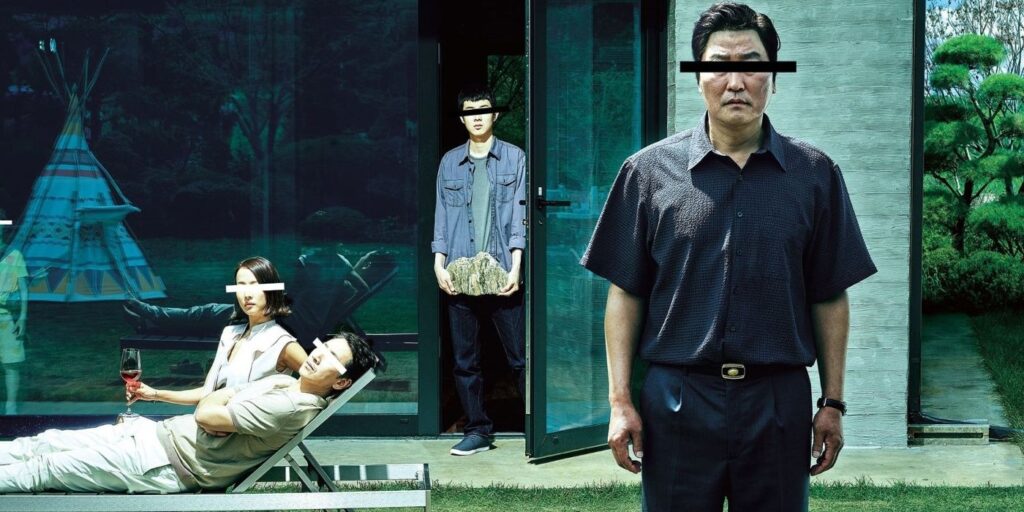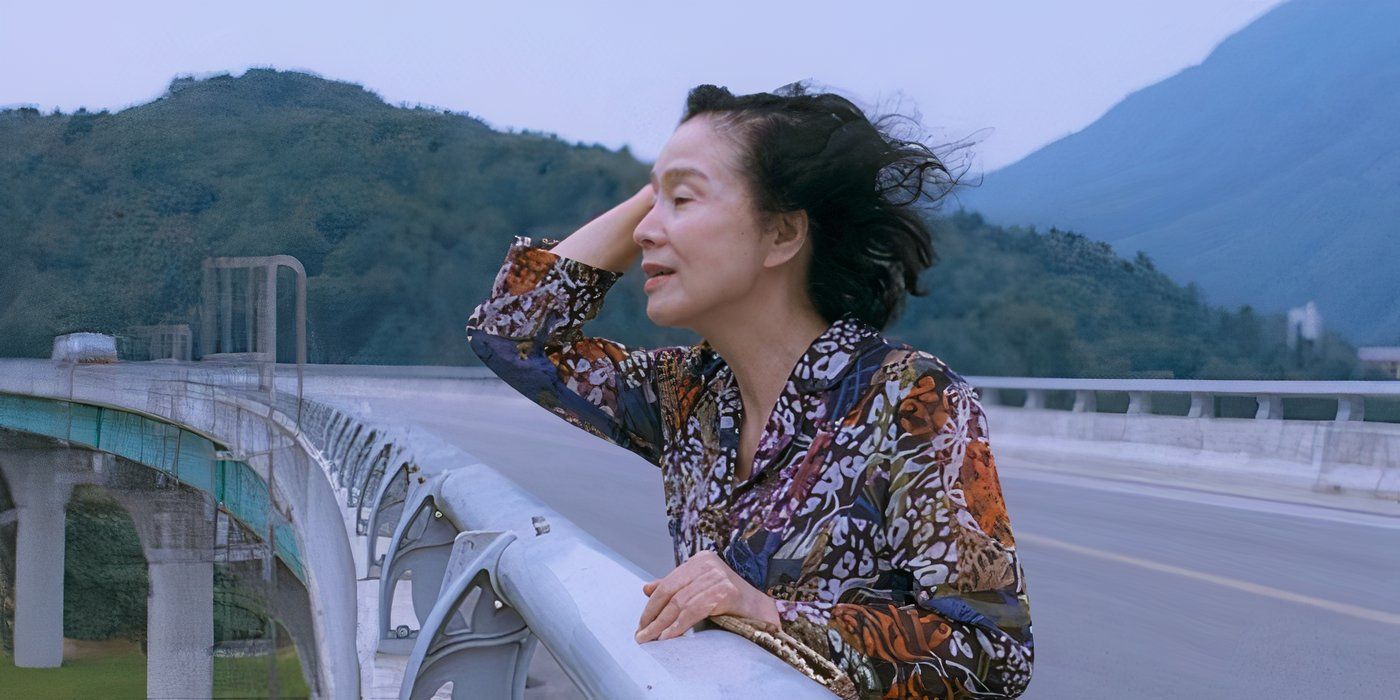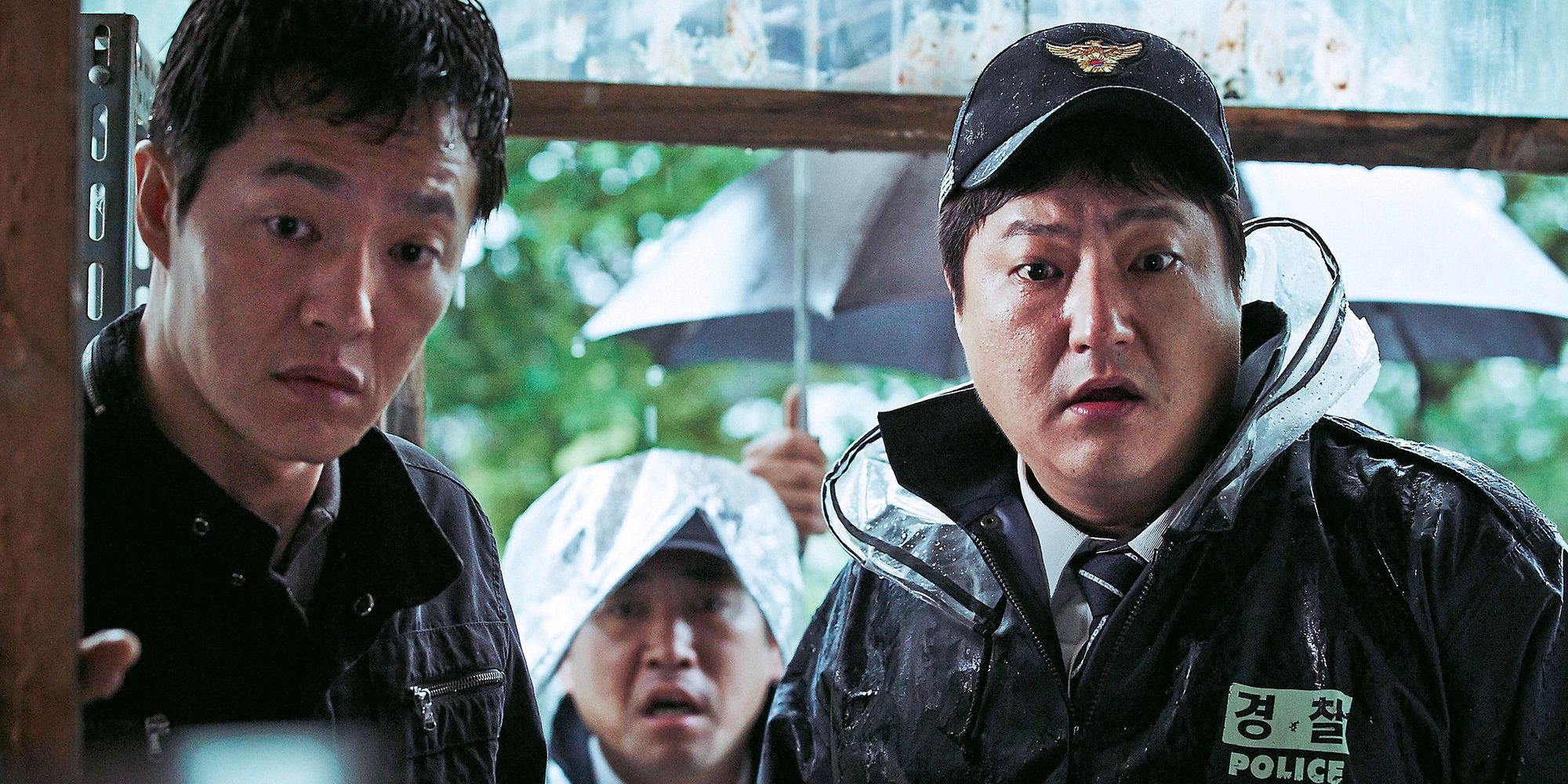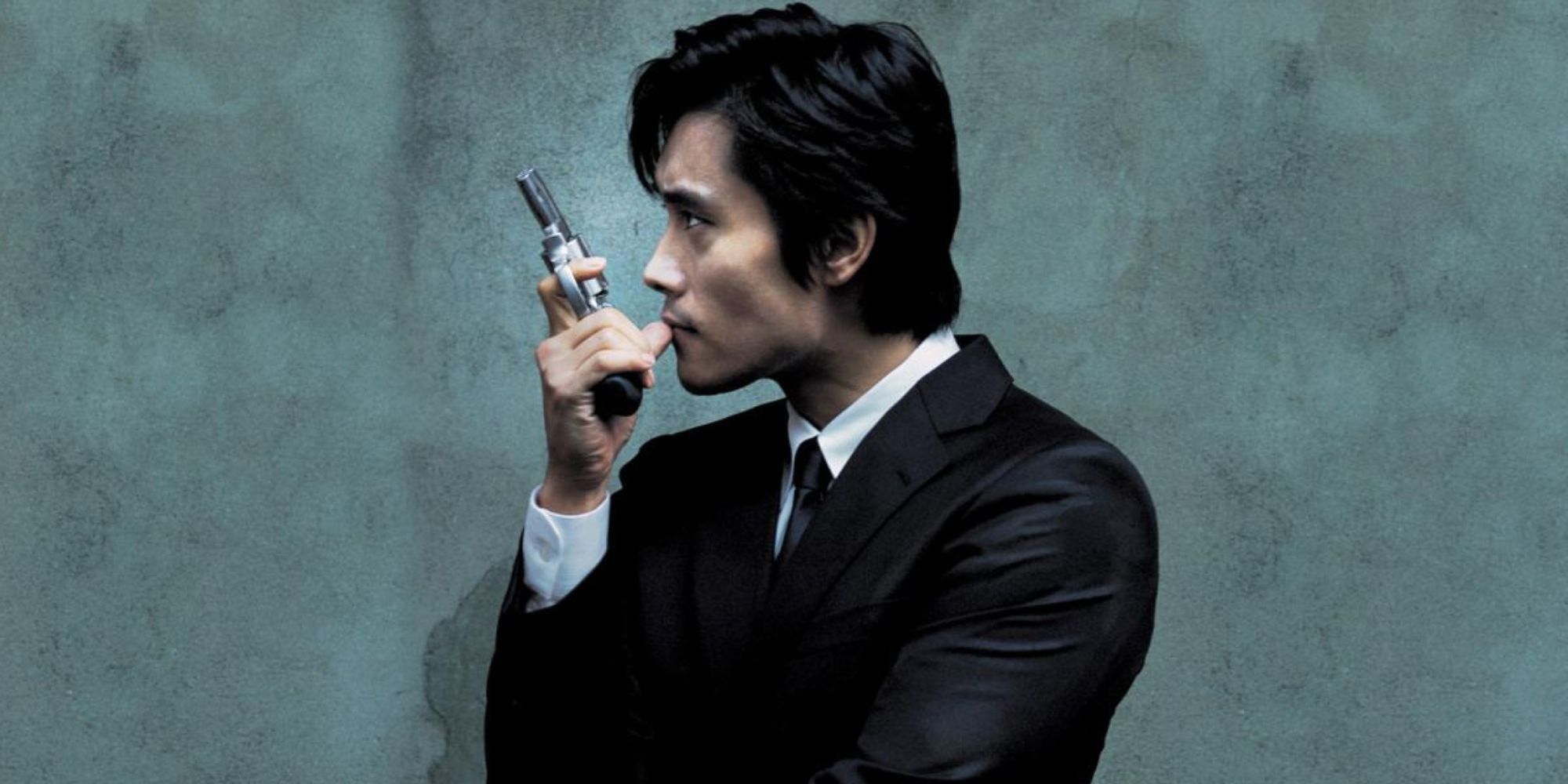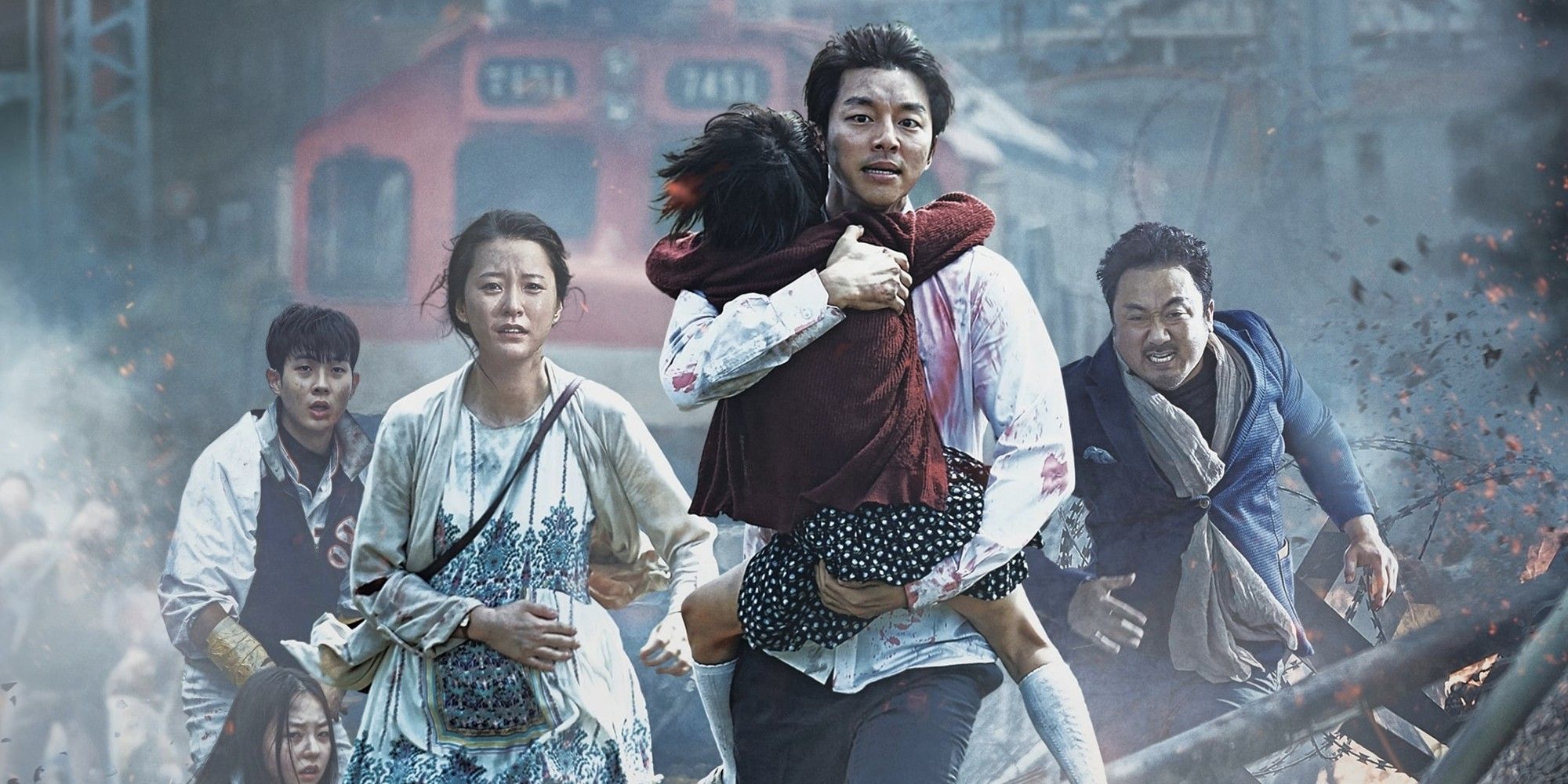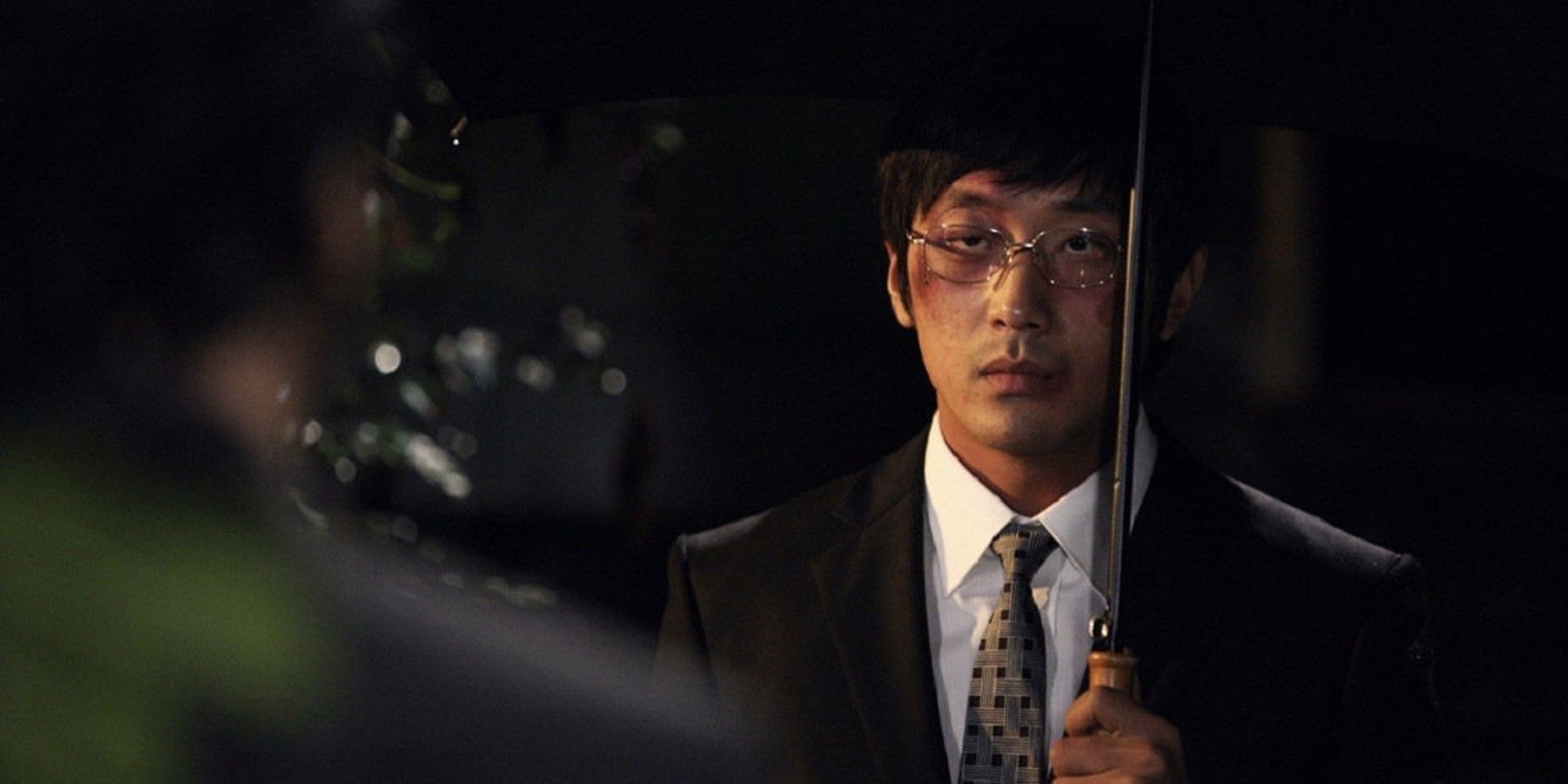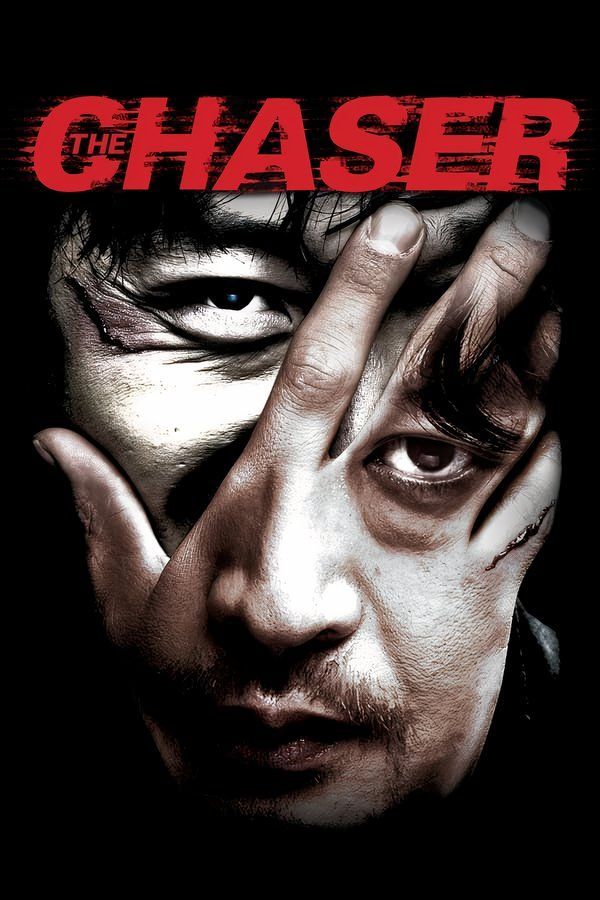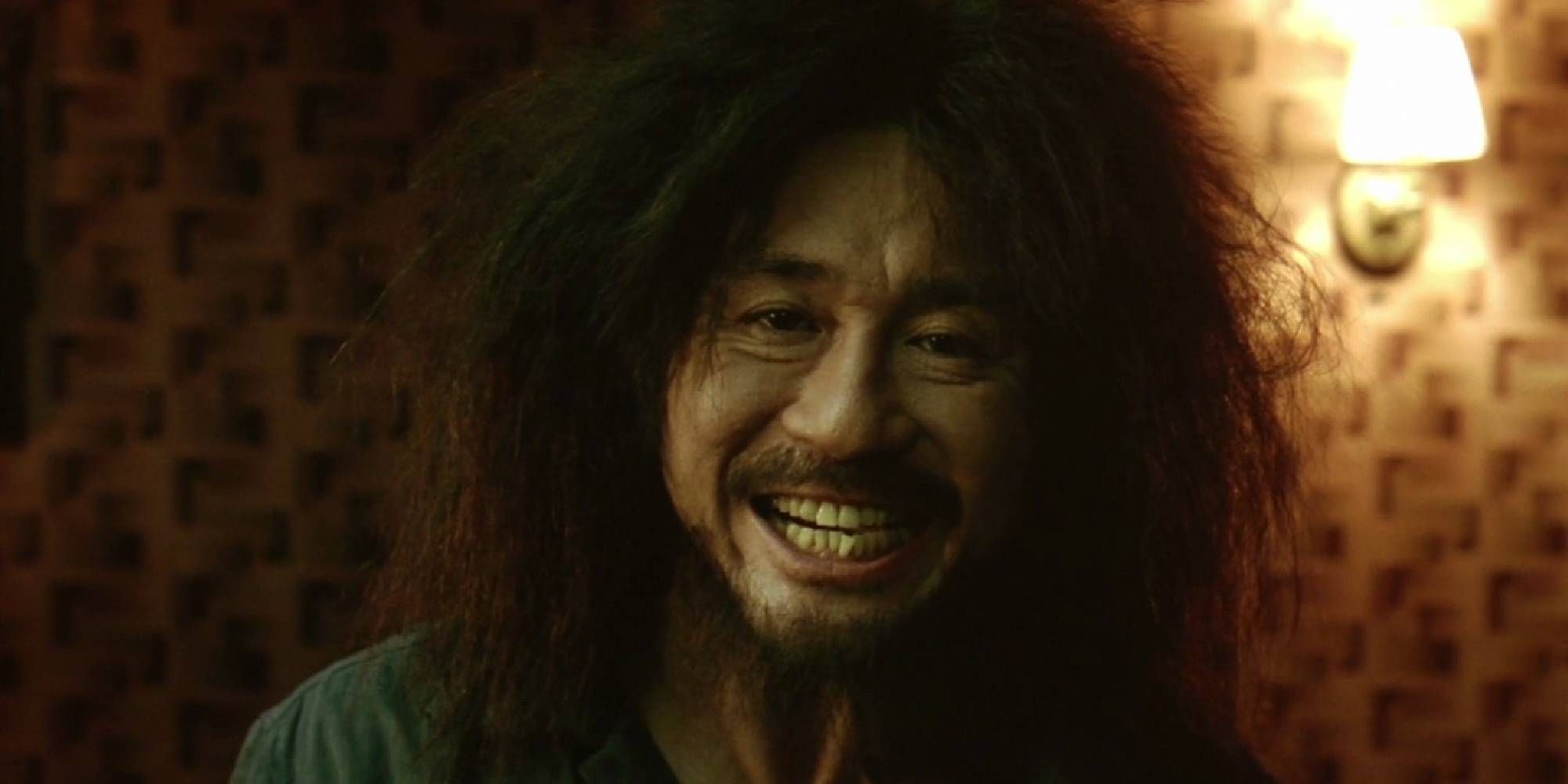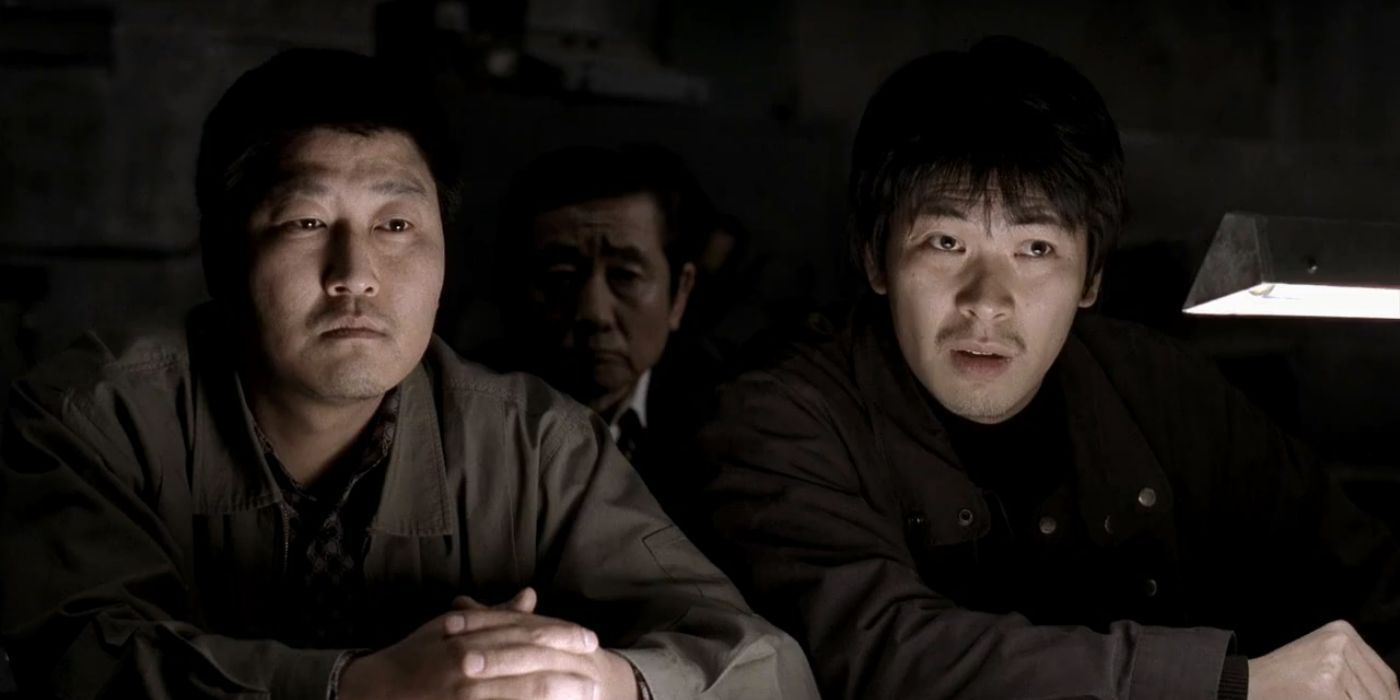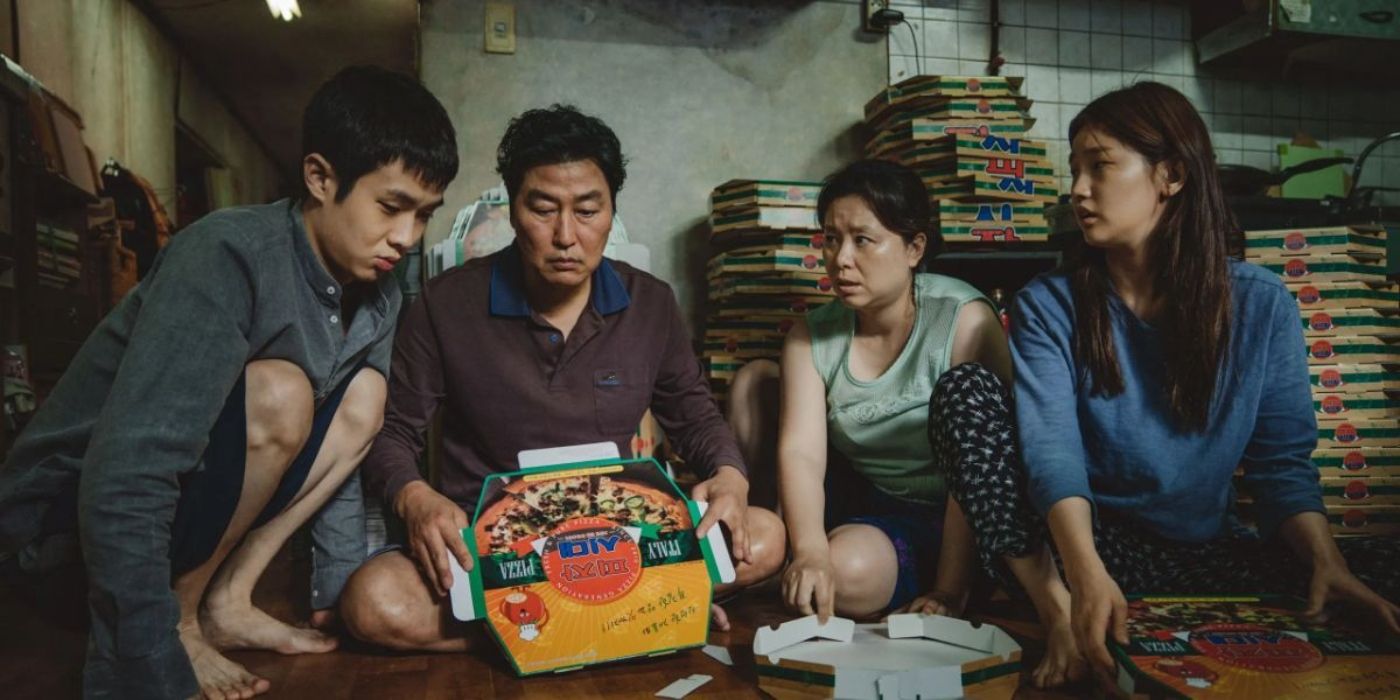South Korean cinema is kind of an vital driving pressure in world cinema, particularly as of late. The twenty first century’s beginnings additionally marked the arrival of the Web and, thus, a freer and extra available openness to the remainder of the world. Anybody fortunate sufficient to expertise the beginnings of this life-changing occasion remembers what it was like to connect with the skin world by way of a screeching dial-up connection and uncover the vastness exterior.
An enormous a part of this enlargement consists of discovering extra worldwide cinema, notably South Korean movies; right now, we won’t think about life with out such a flip of occasions, and a few of the greatest South Korean films of the twenty first century (up to now) have modified a cinephile’s style in movie through the years. The nation’s greatest contributions to cinema since 2000 are home and worldwide legacies; there are much more than ten, however these ten are form of South Korean landmarks with appreciable worldwide impression.
10
‘Pal’ (2001)
Directed by Kwak Kyung-taek
Ask any South Korean one who grew up or was alive through the 2000s, and so they’ll seemingly inform you Friend is one in every of their favourite movies. This groundbreaking gangster drama efficiently captures masculinity, friendship, betrayal, and distance, including a uncooked realism from a uniquely Korean perspective. The director, Kwak Kyung-taek, based mostly the film on his actual childhood mates, setting it in Busan and that includes the genuine Busan dialect, which was seemingly underrepresented on the time.
Pal follows 4 childhood mates from Busan who’re inseparable in school: Joon-seok (Yu Oh-seong), Dong-su (Jang Dong-gun), Sang-taek (Search engine optimization Tae-hwa), and Jung-ho (Jung Woon-taek). As they get older, they drift aside into very completely different lives, main a few of them into crime and others into very regular, mundane lives. The movie formed Korean gangster cinema in some ways, and it stays a cultural touchstone, so it is solely honest that it finds its approach onto this record.
9
‘Poetry’ (2010)
Directed by Lee Chang-dong
Lee Chang-dong directed some heartbreaking and emotional masterpieces over time; his most well-known is undoubtedly Burning, starring Steven Yeun, which is value mentioning as one of many higher South Korean movies of the century. Nevertheless, Poetry feels a bit extra poignant, because it’s an exploration of a lady’s position, in addition to magnificence, growing old, and the guilt she typically harbors all through life. Poetry received Greatest Screenplay on the Cannes Movie Pageant, and Lee had South Korean famous person Yoon Jeong-hee come out of retirement for this position.
Poetry is about an aged girl, Mi-ja (Yeon), who finds out she has Alzheimer’s illness. Throughout its gradual onset, she turns into enthusiastic about studying and writing poetry, attending a category with a bunch. Within the meantime, she lives together with her teenage grandson, Jong-wook (Lee David), who turns into concerned in a neighborhood crime. Juggling accountability for Jong-wook and self-preservation, Mi-ja finds herself in a morally ambiguous state of affairs. The compassion for Mi-ja is prevalent all through Poetry‘s refined and emotional storytelling; the film is gradual however riveting and value waiting for Yeon’s unimaginable efficiency alone.
8
‘The Wailing’ (2016)
Directed by Na Hong-jin
Na Hong-jin is a superb South Korean grasp of horror, and The Wailing have to be his most well-known movie (although The Chaser comes very shut). The Wailing is a horror epic that blends folklore, Christianity, and shamanism, questioning the idea programs of rural communities and difficult their frequent closed-mindedness. Nevertheless, it is not a criticism of any type, however relatively an exploration steeped in a surreal setting and depicted in fairly a terrifying approach. It is perhaps one of the vital divisive Korean movies as a result of individuals analyze its that means and ending to at the present time.
The Wailing follows the residents of a distant Korean village, Gokseong. Upon the arrival of a mysterious Japanese man (Jun Kunimura), the residents begin getting unwell from a mysterious and violent disease. The native police officer, Jong-goo (Kwak Do-won), tries to search out the illness’s trigger till his household is impacted by it as nicely. The film takes a number of turns, including the basic Korean mixture of genres and surprising double-drop plot twists. Asking, “What occurs if you’re undecided the place the evil comes from?” The Wailing thrives within the unknown, turning paranoia right into a symphony.
7
‘I Noticed the Satan’ (2010)
Directed by Kim Jee-woon
The merciless, violent, and extremely twisted awakening in the direction of South Korean cinema got here from one in every of two films: Oldboy and/or I Saw the Devil. It is exhausting to say which of those films is extra twisted, however I Noticed the Satan is still sort of underrated, as individuals typically desire Oldboy. Each films star Choi Min-sik, the Korean appearing legend, and right here, he is joined by one of many nation’s greatest worldwide stars, Lee Byung-hun. I Noticed the Satan is a visceral story of revenge, displaying the hunter and the hunted typically reversing roles and escalating the cruelty they have interaction in.
I Noticed the Satan follows undercover agent Soo-hyun (Lee) trying to find the killer of his fiancée and squad chief’s daughter, Joo-yun (Oh San-ha). Soo-hyun finds the killer, who’s Kyung-chul (Choi), a bus driver and general creep; nonetheless, Soo-hyun would not simply kill him — he makes him run so he can sense the dread his (many) victims seemingly felt. The ethical decay is apparent, and also you’re watching a person spiral into insanity and violence whereas blinded with rage. In some ways, it is a lesson in revenge by no means paying off, packaged in a classy and gory story that can go away you staring on the display screen through the finish credit.
6
‘A Bittersweet Life’ (2005)
Directed by Kim Jee-woon
One other Kim Jee-woon film proper after I Noticed the Satan is the one he made 5 years earlier, A Bittersweet Life. Lee Byung-hun steps into the lead position, and that is arguably his most well-known position domestically. Internationally, Lee is thought for a lot of motion films and dramas, however his position in A Bittersweet Life stays a cult character and determine. The movie is an embodiment of film noir, and it is violent, merciless, and relentless.
A Bittersweet Life depicts the lifetime of a loyal mob enforcer, Solar-woo (Lee). After being ordered to shadow his boss’ girlfriend, Hee-soo (Shin Min-a), he is tasked with killing her. Over time, Solar-woo falls for Hee-soo, displaying cracks in his pretty empty emotional world, however refusing to kill her due to his emotions leads him down the trail of betrayal and vengeance. Chilly and poetic, A Bittersweet Life is a classy and funky depiction of the lifetime of a mob enforcer. It is beloved amongst cinephiles due to its effortless descent into noir and amongst Korean movie followers due to, nicely, Lee Byung-hun and Shin Min-a.
5
‘Practice to Busan’ (2016)
Directed by Yeon Sang-ho
The primary Korean zombie blockbuster, Yeon Sang-ho‘s Train to Busan, is among the most memorable movies of the previous decade. The pulse-raising zombie horror is exclusive for being set on a train, the place the possibilities of escaping a lethal virus are lowered to slim. Yeon is a zombie aficionado, and his trilogy revolving round Practice to Busan (Seoul Station is the prequel, Peninsula the sequel) is among the nation’s most outstanding horror legacies. The film was made for about $8.5 million and earned over $90 million globally and domestically.
Practice to Busan exhibits a lady bringing an an infection onto a KTX prepare, a high-speed prepare working by South Korea from Seoul to Busan. On the core are father and daughter, Seok-woo and Su-an (Gong Yoo and Kim Su-an, respectively), who board the prepare to Busan to go to Su-an’s mom. Whereas on board, unusual occasions begin taking place, and Seok-woo realizes he should get Su-an to security; the zombie outbreak on the prepare strikes rapidly, so the survivors should suppose quick. Greater than the zombie virus, the film exhibits a father trying to become a better man and different passengers going through their humanity within the face of loss of life. Practice to Busan will shock you with its emotional core, however not earlier than it terrifies you.
4
‘The Chaser’ (2008)
Directed by Na Hong-jin
It is attention-grabbing that a few of the biggest movies in South Korean cinema are psychological thrillers/horrors, however Korean filmmakers have discovered a method that works for home and world audiences and are seemingly sticking to it. Na Hong-jin, the writer of The Wailing, directed his debut, The Chaser, in 2008, and he was fortunate that the film typically reaches “better of” lists and must-watch suggestions, contemplating it is a debut.
The Chaser instantly opens by displaying us a ruthless killer, Yeong-min (Ha Jung-woo). He meets with a prostitute and kills her, and when her pimp, Joong-ho (Kim Yoon-seok), realizes she’s not answering her cellphone, he begins in search of her within the neighborhood, triggering a pursuit of the intelligent and elusive Yeong-min. The film’s greatest suspense lies within the crimson tape Joong-ho has to undergo, depicting systemic failure as an important participant in heavy crimes. The Chaser was based on true crimes and options characters you’ll be able to’t actually cheer for however haven’t got a alternative, anyway. It additionally impressed fashionable Korean crime thrillers, together with the cat-and-mouse chase and relentless races towards time tropes.
3
‘Oldboy’ (2003)
Directed by Park Chan-wook
Park Chan-wook is perhaps essentially the most well-known Korean director exterior his motherland, although Bong Joon-ho has began to enlarge waves previously 5 – 6 years. Nonetheless, Park remains a nuanced storyteller, crafting visually spectacular tragedies which can be troublesome to overlook. Oldboy was his ticket to the worldwide cinema aircraft, a hyper-stylized, Shakespearean revenge story that equally shocked and mesmerized the world. Park (and Oldboy) is among the originators of the one-shot hallway battle scene, which was later imitated in quite a few different movies, including its remakes.
Oldboy is about Oh Dae-su (Choi Min-sik), a person who’s sooner or later imprisoned with out understanding why or the place he’s. Dae-su stays in an remoted resort room for 15 years, however after being surprisingly launched, he is given 5 days to find the reality behind his imprisonment. Within the meantime, Dae-su meets the younger sushi chef, Mi-do (Kang Hye-jung), and bonds together with her. An unforgettable plot twist and ending make Oldboy an iconic movie, although as a sum of all its elements, it nonetheless counts as probably the greatest South Korean films of the twenty first century.
2
‘Reminiscences of Homicide’ (2003)
Directed by Bong Joon-ho
One other instance of forms being the enemy of justice lies in Memories of Murder, one in every of the greatest movies of all time. The excellent mix of a criminal offense thriller and an existential horror, Bong Joon-ho’s second film balances comedy into the combination, making its critical matter really feel absurd in moments when it exhibits the best injustices. The film was impressed by South Korea’s greatest serial killing spree that happened in Hwaseong in the late 1980s. The world was out of the blue affected by chilly, brutal crimes that also weigh closely on the nation’s shoulders; many filmmakers tried including logic to the occasions.
Reminiscences of Homicide follows the detectives of a small city, Park Doo-man (Song Kang-ho) and Cho Yong-koo (Kim Roi-ha), utilizing brutish strategies to resolve a collection of murders. When their investigation hits a wall, a Seoul detective, Search engine optimization Tae-yoon (Kim Sang-kyung), is dispatched to assist them. Park and Search engine optimization first conflict of their strategies, as Search engine optimization is logical and methodical, however Park learns how one can be a greater detective within the course of. This masterpiece of cinema balances process, failure, uncertainty, and terror superbly; it takes viewers on a visually beautiful journey of heartbreak.
1
‘Parasite’ (2019)
Directed by Bong Joon-ho
One other Bong Joon-ho characteristic on the record is, undoubtedly, the very best Korean film of the century up to now. Why? Parasite was the primary non-English film in historical past to win the Best Picture Oscar; not simply that, Bong took dwelling the Greatest Director and Greatest Screenplay awards, and the characteristic was awarded a Greatest Overseas Language Movie Oscar, too. The accolades communicate for themselves, as the emotion and terror of Parasite resonated throughout the globe. This genre-bending film explores the atrocities of class and capitalism, depicting stereotypical personalities in the layers of Korean society.
Parasite follows the poor Kim household: Ki-taek (Music Kang-ho), Chung-sook (Jang Hye-jin), Ki-woo (Choi Woo-sik), and Ki-jung (Park So-dam). They float their approach by life, as Ki-taek teaches them to rip-off and steal, however when Ki-woo will get an opportunity to show English to a rich household’s daughter, the Kims discover their approach into the household’s dwelling, infiltrating it and mooching off of them. As with most of Bong’s movies, Parasite is satire till it is simply downright tragic; each beat, prop, and digital camera motion is designed to serve a selected function. The film is kind of a watershed second for world cinema, cementing Bong (deservedly) as one of many biggest administrators alive.
